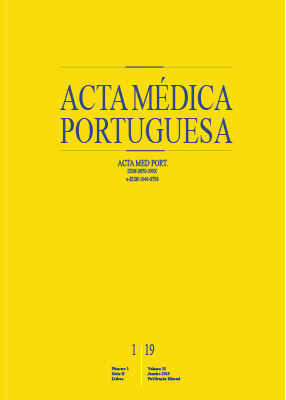Medical Student Secrecy, its Link to the Duty of Confidentiality and the Right to Access and Reuse Health Information
DOI:
https://doi.org/10.20344/amp.10958Keywords:
Access to Information/legislation & jurisprudence, Confidentiality, Education, Medical, Undergraduate, Electronic Health Records, Medical Records, Portugal, StudentsAbstract
The authors address the legal void that exists regarding medical student access to clinical records and health information that local healthcare organizations hold under legal and institutional custody. They develop a legal thesis that configures the creation of medical student professional secrecy and its connection with the duty of confidentiality as assumptions that underlie the medical student’s right to access and reuse health information. Medical students have the legitimacy to access health information and clinical records, as they bear an unequivocal informational, legitimate, constitutionally protected and sufficiently relevant need. They conclude that the legislature must work together with universities and hospital institutions to legally establish the concept of Medical Student Professional Secrecy, its link to the duty of confidentiality and the right of the medical student to access and reuse health information. Furthermore, it must do so in a specific legal act and in the precise terms of the text approved unanimously by the Council of Portuguese Medical Schools, by the National Council of Medical Ethics and Deontology, by the National Council of the Portuguese Medical Association and by its President.Downloads
Published
How to Cite
Issue
Section
License
All the articles published in the AMP are open access and comply with the requirements of funding agencies or academic institutions. The AMP is governed by the terms of the Creative Commons ‘Attribution – Non-Commercial Use - (CC-BY-NC)’ license, regarding the use by third parties.
It is the author’s responsibility to obtain approval for the reproduction of figures, tables, etc. from other publications.
Upon acceptance of an article for publication, the authors will be asked to complete the ICMJE “Copyright Liability and Copyright Sharing Statement “(http://www.actamedicaportuguesa.com/info/AMP-NormasPublicacao.pdf) and the “Declaration of Potential Conflicts of Interest” (http:// www.icmje.org/conflicts-of-interest). An e-mail will be sent to the corresponding author to acknowledge receipt of the manuscript.
After publication, the authors are authorised to make their articles available in repositories of their institutions of origin, as long as they always mention where they were published and according to the Creative Commons license.









